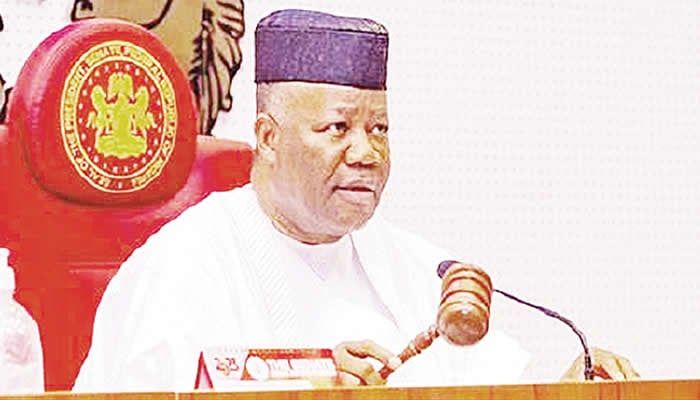
President of the Senate, Godswill Akpabio, has warned that Nigeria’s health sector funding remains far below commitments made at continental and global levels. He made the remarks during a public hearing organized by the Senate Committee on Health (Secondary and Tertiary) in Abuja on Monday.
The hearing focused on five key bills, including the Sickle Cell Disorder Research and Therapy Centres (Establishment) Bill, sponsored by Sen. Sunday Katung (Kaduna South), and the National Health Act (Amendment) Bill, sponsored by Sen. Ipalibo Banigo (Rivers West), which seeks to increase health sector funding. Other bills considered were the Orthopaedic Hospital Establishment Bill, Kogi State, and two bills establishing National Eye Care Centres in Plateau and Benue States.
Represented by Senate Chief Whip, Mohammed Monguno, Akpabio stressed that current funding levels fall short of what is required to meet national healthcare needs.
“This National Health Act (Amendment) Bill aims to strengthen the financial framework for primary healthcare, disease prevention, health workforce development, and emergency response. Increased funding is not an expense; it is an investment in national security, economic growth, and human capital”, he said.
He emphasized that the bills address pressing health challenges affecting millions of Nigerians. Highlighting the Sickle Cell Disorder Bill, he noted, “Nigeria has the highest burden of sickle cell disease in the world. Thousands of children are born with this disorder annually, and many do not survive to adulthood due to inadequate diagnosis and limited access to therapy. These centres will expand scientific knowledge, improve patient care, and reduce mortality, giving hope to affected families”.
Chairman of the committee and sponsor of the National Health Act (Amendment) Bill, Sen. Banigo, said the legislation proposes raising the Basic HealthCare Provision Fund (BHCPF) from the current 1% to 2% of the Consolidated Revenue Fund to meet national health needs adequately.
Sen. Katung added that the proposed Sickle Cell Disorder Centres would include one in each of the six geopolitical zones and one in the Federal Capital Territory.
“These Centres will serve as hubs of excellence where patients receive specialist care, and families receive counselling. They represent Nigeria’s commitment to providing children with sickle cell disorder the same standard of care available globally”, he said, noting that approximately 150,000 babies are born with the condition in Nigeria each year.
Akpabio concluded by reaffirming the National Assembly’s commitment to strengthening Nigeria’s health architecture and ensuring legislation responds effectively to citizens’ health realities.



